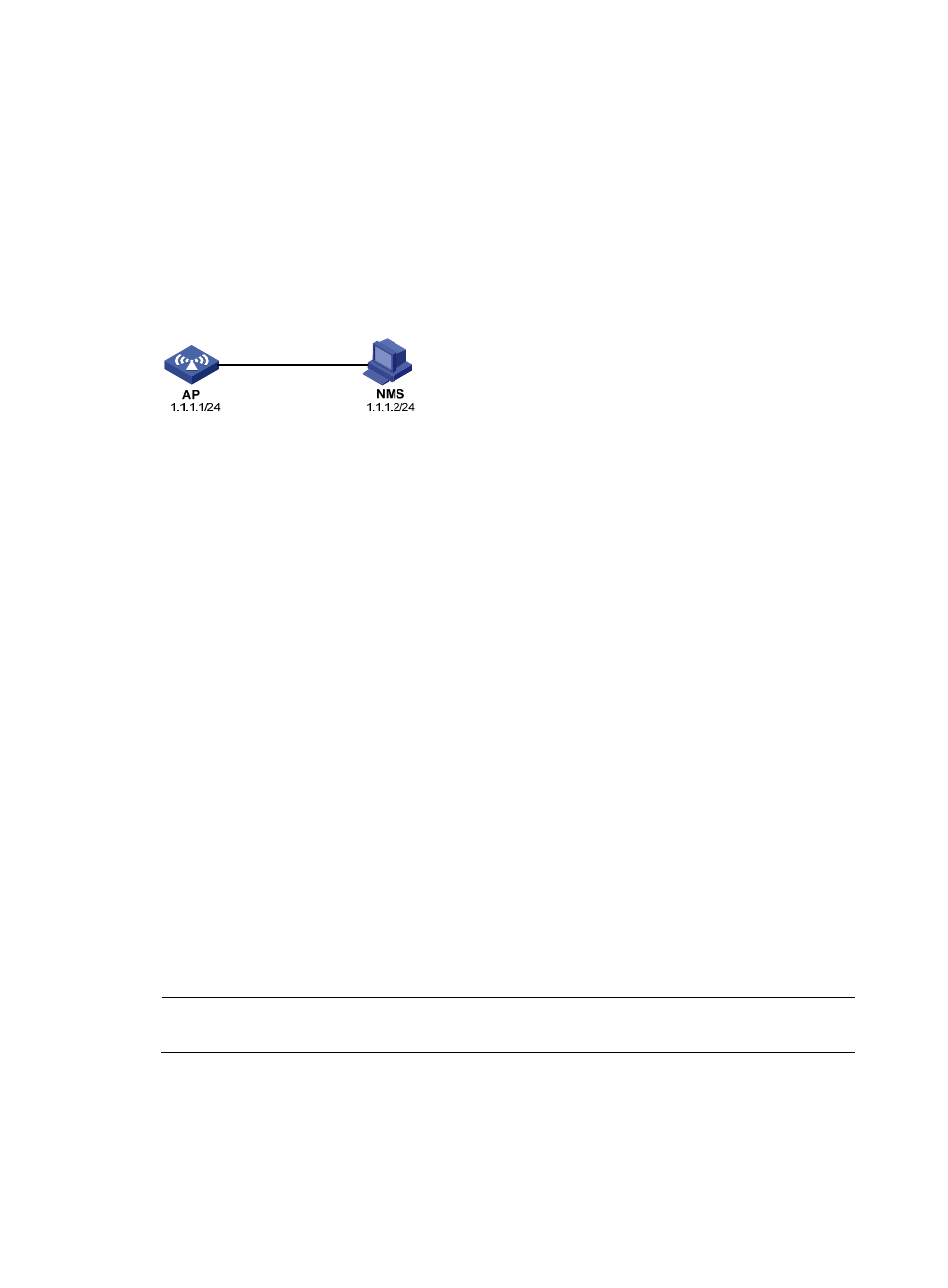Snmp configuration examples, Snmpv1/snmpv2c configuration example, Network requirements – H3C Technologies H3C WX3000E Series Wireless Switches User Manual
Page 47: Configuration procedure

38
SNMP configuration examples
SNMPv1/SNMPv2c configuration example
Network requirements
As shown in
, the NMS (1.1.1.2/24) uses SNMPv1 or SNMPv2c to monitor and manage the AP
(1.1.1.1/24), and the AP automatically sends traps to report events to the NMS.
Figure 18 Network diagram
Configuration procedure
1.
Configure the AP:
# Configure the IP address of the AP and make sure that the agent and the NMS can reach each other.
(Details not shown.)
# Specify SNMPv1 and SNMPv2c, and create a read-only community public and a read and write
community private.
[AP] snmp-agent sys-info version v1 v2c
[AP] snmp-agent community read public
[AP] snmp-agent community write private
# Configure contact and physical location information for the AP.
[AP] snmp-agent sys-info contact Mr.Wang-Tel:3306
[AP] snmp-agent sys-info location telephone-closet,3rd-floor
# Enable SNMP traps, set the NMS at 1.1.1.2/24 as an SNMP trap destination, and use public as the
community name. (To make sure the NMS can receive traps, specify the same SNMP version in the
snmp-agent target-host command as on the NMS.)
[AP] snmp-agent trap enable
[AP] snmp-agent target-host trap address udp-domain 1.1.1.2 udp-port 5000 params
securityname public v1
2.
Configure the SNMP NMS:
Specify the read only community, the read and write community, the timeout time, and the number of
retries. For information about how to configure the NMS, see the NMS manual.
NOTE:
The SNMP settings on the AP and the NMS must match.
3.
Verify the configuration:
{
Check that the NMS and the AP can set up SNMP sessions, and the NMS can query and set
MIB variables on the AP.
{
Execute the shutdown and undo shutdown commands on an idle interface on the AP, and check
that the NMS can receive linkUp and linkDown traps.
